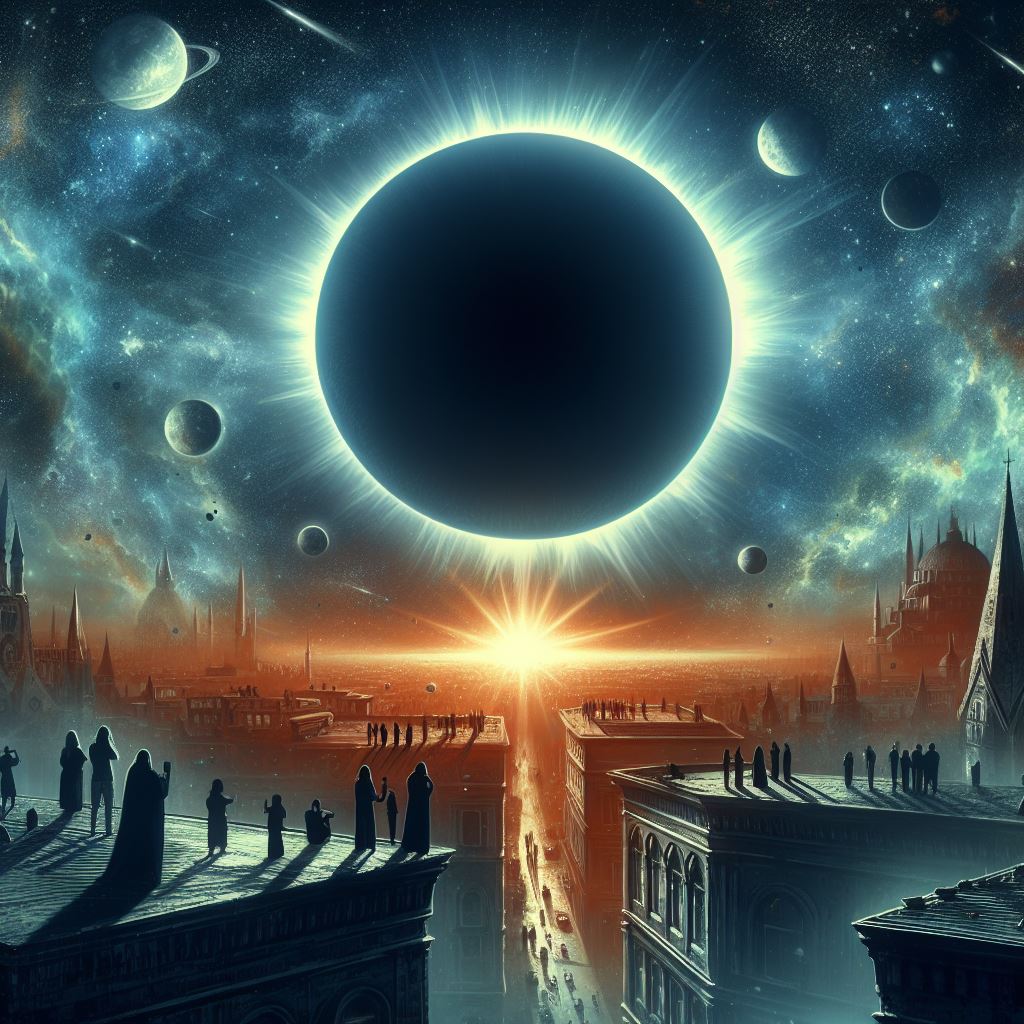On April 8, 2024, the world will bear witness to one of nature’s most captivating phenomena: a solar eclipse. This extraordinary event occurs when the moon passes between the Earth and the Sun, casting a shadow on our planet and temporarily blocking out the Sun’s rays. The result is a breathtaking display of cosmic alignment that has intrigued and inspired people throughout history.
Watch livestream powered by Nasa
The path of totality for the solar eclipse on April 8, 2024, will sweep across North America, offering millions of people the opportunity to experience this rare spectacle firsthand. From the Pacific Northwest to the Atlantic Southeast, communities along the eclipse’s path will be treated to varying degrees of darkness as the moon obscures the Sun.
In cities like Dallas, Indianapolis, and New York City, observers will witness a partial solar eclipse, where the moon covers a portion of the Sun’s disk. This partial phase will create a surreal atmosphere as daylight dims and shadows take on a crescent shape, reminiscent of a lunar phase.
As the moon completely blocks the Sun, plunging the landscape into darkness for a few precious minutes, observers will be treated to a sight of unparalleled beauty. The Sun’s corona, a shimmering halo of hot, ionized gas, will be visible around the moon’s silhouette, creating a mesmerizing ring of light against the darkened sky.
Safety precautions are paramount when observing a solar eclipse. Looking directly at the Sun without proper eye protection can cause permanent damage to the eyes. Specialized solar viewing glasses or handheld solar viewers are essential for safely observing the eclipse.
For those unable to witness the event in person, live streams and broadcasts will provide a virtual front-row seat to the celestial spectacle. From the comfort of their homes, viewers around the world can tune in to witness the magic of the solar eclipse as it unfolds in real time.
Beyond its sheer beauty, solar eclipses also serve as valuable opportunities for scientific research. Astronomers use eclipses to study the Sun’s outer atmosphere, known as the corona, and gain insights into its behavior and dynamics. Additionally, observations made during eclipses contribute to our understanding of Earth’s atmosphere and its interactions with solar radiation.
As we eagerly anticipate the solar eclipse of April 8, 2024, let us marvel at the wonders of the cosmos and reflect on our place in the vast expanse of the universe. Whether watching from a bustling city or a remote countryside, may this celestial event remind us of the profound beauty and mystery that surrounds us, both on Earth and in the heavens above.












Leave a Reply